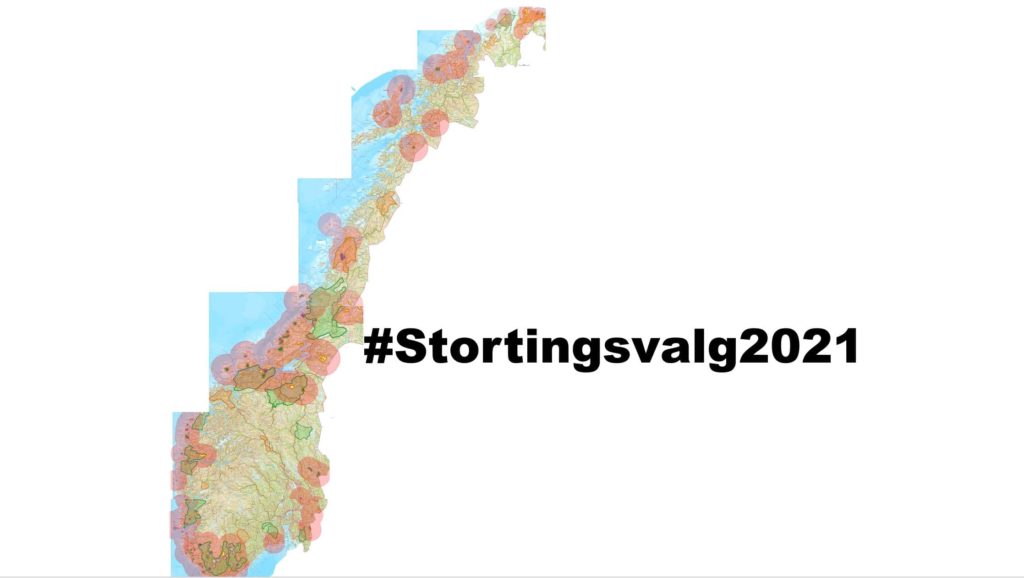
The IPCC report has influenced the Norwegian election and people are eager to elect politicians that will address climate change, but still, there seems the collapse in biodiversity is not understood by many. This makes for an outcry – YOU CANNOT SAVE THE CLIMATE BY DESTROYING NATURE!
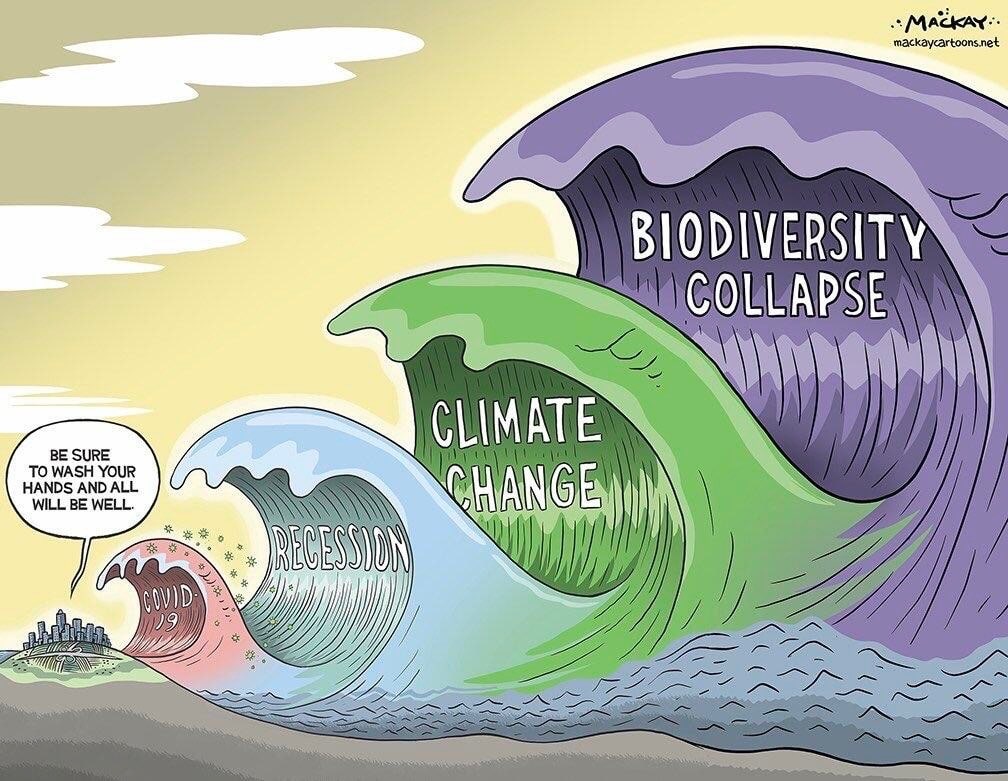
While Humanity struggles to agree on whether, hand hygiene, social distancing, masks, and quarantines help to flatten the curve of COVID-19, the challenges ahead are of a whole different magnitude.
In fact, the temporary setback in economic activity caused by COVID-19 induced lockdowns caused “a three-week relief” in the global Ecological Footprint or 10% compared to last year setting the Earth Overshoot Day 2020 at August 22.
Earth Overshoot Day marks the date when humanity’s demand for ecological resources and services in a given year exceeds what Earth can regenerate in that year.
The main drivers were the carbon Footprint (reduced 14.5% from 2019) and the forest product Footprint (reduced 8.4% from 2019), but we still use as many ecological resources as if we lived on 1.6 Earths.
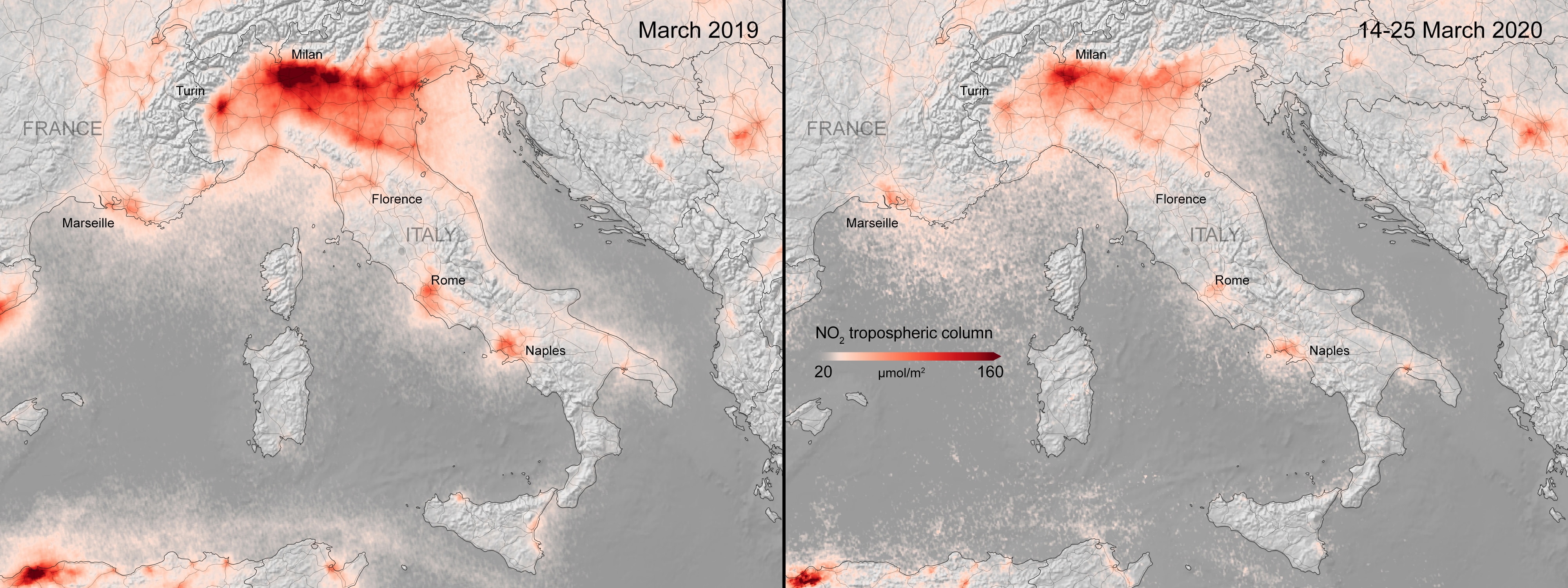
As public health and economic recovery have emerged as dominant concerns globally, decision-makers are called to act on the unprecedented current disruption to build a future where all thrive within the means of our planet (“one-planet prosperity”). That means to put an end to the endless pursuit of growth even if tech optimists label it “Green Growth”. But honestly, what are the chances we’ll change our behavior in the aftermath of COVID?
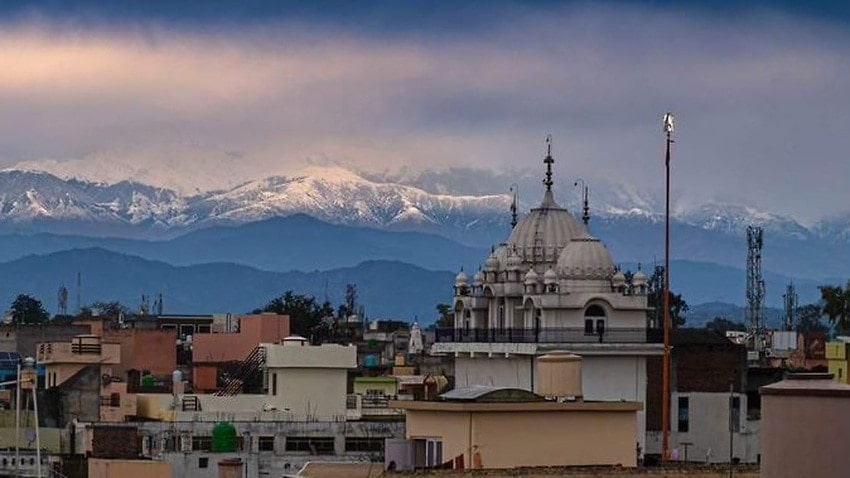
Imagine if we could live this way by de-carbonizing industry & transport instead of shutting them down?
Infectious diseases that cause epidemics are often a result of things people do in nature. The disruption of nature causes disease and 60 percent of these infectious diseases are zoonotic; meaning they come from animals first. This includes AIDS, Ebola, swine flu, and mad cow disease
Lama El-Hatow, environmental and social consultant
at the International Finance Corporation (IFC)
The economic downturn caused by COVID-19, according to the World Bank, is predicted to shrink the global economy by 5.2 percent this year—the deepest recession since the Second World War.
The International Energy Agency has forecast the CO2 impact of the crisis, suggesting emissions could fall by 8% this year, some 2,600MtCO2.
For post-COVID-19 recovery, there needs to be social inclusion in terms of health care and education infrastructure, investments in renewable energy, and a move to a more digital economy that includes e-commerce, e-payments, e-learning, and e-governance.
Se dette innlegget på Instagram
The Paris Agreement is five years and Greta and here #FridaysForFuture movement has been urging us to fight the Climate Crisis for more than two years. The US has withdrawn from the Paris Agreement and more or less resigned as the so-called leader of the free world. As a society within common planetary borders we are barely moving, our politicians are either betraying us, incapable of understanding the urgency, or simply not up to the task of addressing the largest assignment of our time.
And still, tech optimists think we can invent us out of it, they gather around Green Growth, preaching to save the Climate through renewable energy while destroying more and more Nature.
The danger of the “environmental-industrial complex”
Jens Stoltenberg has a sensational chapter – “Biobråk” – in his book Min historie. He refers to President Eisenhower’s farewell speech in 1961, in which the old general warns against the “military-industrial complex” – the political pressure from the common interest between the Armed Forces and the military industry.
Stoltenberg draws a parallel to two important environmental issues from his time as prime minister, where he knew he had the science and the facts on his side, but still lost politically. Politicians were outmaneuvered by an “environmental-industrial complex” of business interests and lobby groups from parts of the environmental movement.
Doubtful effect
The two cases are electricity certificates, misleadingly called “green certificates”, and biofuels. The electricity certificates created a subsidy industry financed by ordinary consumers. They involved the development of otherwise unprofitable wind and hydropower plants, increased exports of surplus power, increased consumption, and lost money for the community. It had a dubious effect as an environmental measure, but gained traction as a symbolic issue for the “green shift”.
The second case concerned the introduction of a toll on biofuels that the Prime Minister wanted. The environmental-industrial complex had realized that the “green shift” demanded a tax exemption. This case came up again with full force after the Government set an ambitious goal of gradually increasing the involvement of biofuels. Stoltenberg insists that he had a factually well-founded view – biofuels would increase greenhouse gas emissions, displace food production, provide more expensive food, increase profitability for cultivation in felled or burned rainforest, more transportation of raw materials, and more car traffic.
In the questions about electricity certificates and biodiesel, the authorities have made decisions without scientific advice.
Influence from business interests, lobbyists, and committed idealists have been crucial, in addition to the game between government, support parties, and opposition.
Polluter pays
A key economic point that Stoltenberg emphasizes is that environmental taxes and climate quotas are generally better for the environment than subsidies. This means that polluters pay, while subsidies create state-subsidized special interests. These favored interests then become an increasingly strong pressure group to maintain the subsidy scheme, whether it is beneficial to the environment or not. Central politicians recently sent out a signal that the scheme with Norwegian-Swedish electricity certificates will be extended until 2030.
Political game
The significance of the scientific communities for climate policy is twofold. On the one hand, research-based insight has had great political significance for the diagnosis of the problems. The UN Climate Panel has made a breakthrough. On the other hand, scientifically-based advice is significantly weaker in the choice of instruments. Here, lobbying, economic pressure, political games, and ideological beliefs have a far more central place. Broad scientific advice and professional consultations would make a difference.

The state of the planet is broken
On December 2. at Columbia University, the UN Secretary-General Antonio Guterres delivered a landmark speech on the state of the planet, setting the stage for dramatically scaled-up ambition on climate change over the coming year. Mr. Guterres wants to put tackling climate change at the heart of the UN’s global mission. The objective, said the UN secretary-general, will be to cut global emissions by 45% by 2030 compared with 2010 levels.
The science is clear unless the world cuts fossil fuel production by 6% every year between now and 2030, things will get worse. Much worse.
Climate policies have yet to rise to the challenge, the UN chief said, adding that “without concerted action, we may be headed for a catastrophic three to five-degree temperature rise this century”.
The impact is already being felt around the world.
“Apocalyptic fires and floods, cyclones and hurricanes are the new normal,” he warned.
Biodiversity is collapsing. Deserts are spreading. Oceans are choking with plastic waste.
We must declare a permanent ceasefire and reconcile with nature.
Here’s what Mr. Guterres demanded the nations of the world do:
- Put a price on carbon
- Phase-out fossil fuel finance and end fossil fuel subsidies
- Shift the tax burden from income to carbon, and from taxpayers to polluters
- Integrate the goal of carbon neutrality (a similar concept to net-zero) into all economic and fiscal policies and decisions
- Help those around the world who are already facing the dire impacts of climate change
Humanity is waging war on nature.
Nature always strikes back – and it is already doing so with growing force and fury.
The fallout of the assault on our planet is impeding our efforts to eliminate poverty and imperiling food security.
And it is making our work for peace even more difficult, as the disruptions drive instability, displacement, and conflict.
Make peace with nature
Nature needs a bailout. In overcoming the pandemic, we can also avert climate cataclysm and restore our planet.
The trillions of dollars needed for COVID recovery is money that we are borrowing from future generations.
We cannot use those resources to lock in policies that burden them with a mountain of debt on a broken planet.
It is time to flick the “green switch”. We have a chance to not simply reset the world economy but to transform it.
Start carbon neutrality, now
By early next year, countries representing more than 65 percent of global carbon dioxide emissions and more than 70 percent of the world economy will have made ambitious commitments to carbon neutrality.
We must turn this momentum into a movement. The central objective of the United Nations for 2021 is to build a truly Global Coalition for Carbon Neutrality.
Every country, city, financial institution, and company should adopt plans for transitioning to net zero emissions by 2050…(and take) decisive action now.
Put global finance to work for climate
The commitments to net-zero emissions are sending a clear signal to investors, markets, and finance ministers. But we need to go further.
It is time to put a price on carbon. To phase out fossil fuel finance and end fossil fuel subsidies. To stop building new coal power plants.
(It is time) to integrate the goal of carbon neutrality into all economic and fiscal policies and decisions. And to make climate-related financial risk disclosures mandatory.
Protect the most vulnerable
We are in a race against time to adapt to a rapidly changing climate.
Adaptation must not be the forgotten component of climate action. We have both a moral imperative and a clear economic case for supporting developing countries to adapt and build resilience to current and future climate impacts.
The race to resilience is as important as the race to net zero.
Act with urgency – and hope
This is a moment of truth for people and the planet alike. COVID and climate have brought us to a threshold.
We cannot go back to the old normal of inequality, injustice, and heedless dominion over the Earth. Instead, we must step towards a safer, more sustainable, and equitable path. The door is open; the solutions are there.
Now is the time to transform humankind’s relationship with the natural world – and with each other. And we must do so together.
Solidarity is humanity. Solidarity is survival.

- Warming beyond 1.5°C will substantially increase the risk of global species extinctions.
- The ocean is already warmer, more acidic, and less productive.
- Around 7 million people die every year from exposure to polluted air.
- Nature-based solutions could provide one-third of the net reductions in greenhouse gas emissions required to meet Paris Agreement goals.
- Bold climate action could deliver $26 trillion in economic benefits by 2030.
- Renewable energy is getting cheaper all the time.
- Switching to a clean economy could produce over 65 million new low-carbon jobs.
- An investment of $1.8 trillion from 2020 to 2030 in adaptation could generate $7.1 trillion in total net benefits.

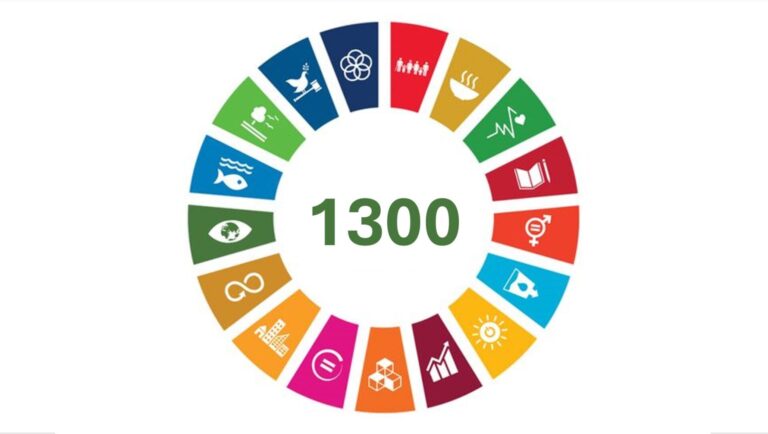


39 Comments
Pingback: Sealine products
Pingback: Provident Financial Management
Pingback: bonanza178
Pingback: vigrx plus
Pingback: 20166 Homes for Sale
Pingback: โปรโมชั่น เกมคาสิโนสดเว็บตรง SA GAMING
Pingback: สล็อตเว็บตรง
Pingback: Buy 3MMC
Pingback: jazz melodies
Pingback: Hunting Bows
Pingback: xo666
Pingback: หากไม่อยากหมดตัว พึงระวัง 5 ข้อห้าม กฎเหล็กบาคาร่า
Pingback: บับเบิ้ล
Pingback: clipzui,clip zui,ClipZui,Clip Zui,clipzui.cc,www.clipzui.cc
Pingback: ร้านแว่น สุขุมวิท
Pingback: Phim moi
Pingback: rich89bet
Pingback: เช่ารถตู้พร้อมคนขับ
Pingback: Micro Step
Pingback: สล็อต เครดิตฟรี
Pingback: https://hitoption.net
Pingback: ป้ายอัฐิ
Pingback: ประวัติความเป็นมาของเว็บ sportbet4x
Pingback: เครื่องทำน้ำแข็ง
Pingback: Gclub Slot
Pingback: comprar xanax
Pingback: Koop Diazepam 10 mg online
Pingback: สล็อตแตกง่าย
Pingback: สล็อตวอเลท เว็บตรง ระบบการเงินแม่นยำ
Pingback: buying weed in greece
Pingback: kc9
Pingback: Lsm65 ทางเข้าคาสิโนเว็บตรง
Pingback: visit site
Pingback: lazywin888
Pingback: Freshbet
Pingback: ประวัติและวิวัฒนาการของ ไฮโลไทย
Pingback: 1win
Pingback: Diyala University in iraq
Pingback: ทดลองเล่นสล็อต pg